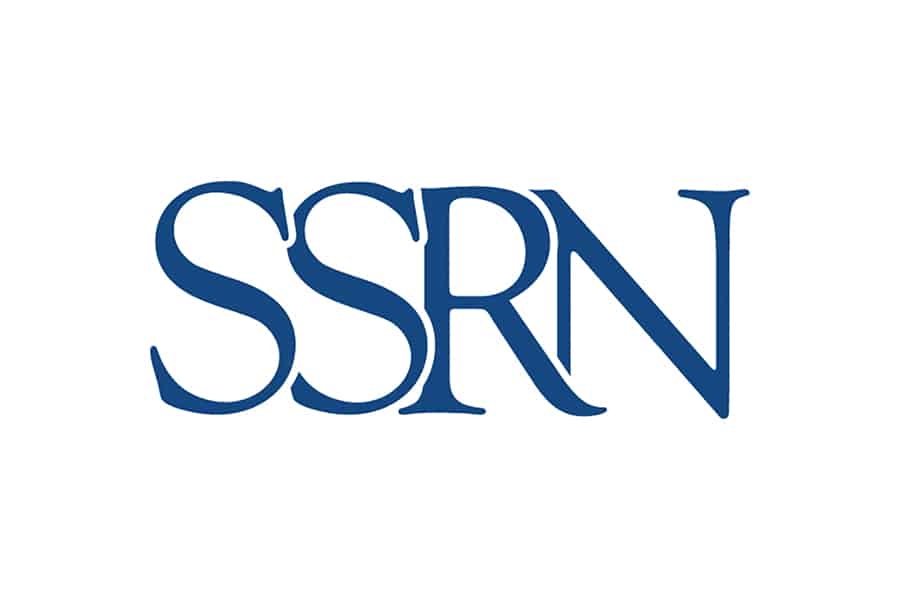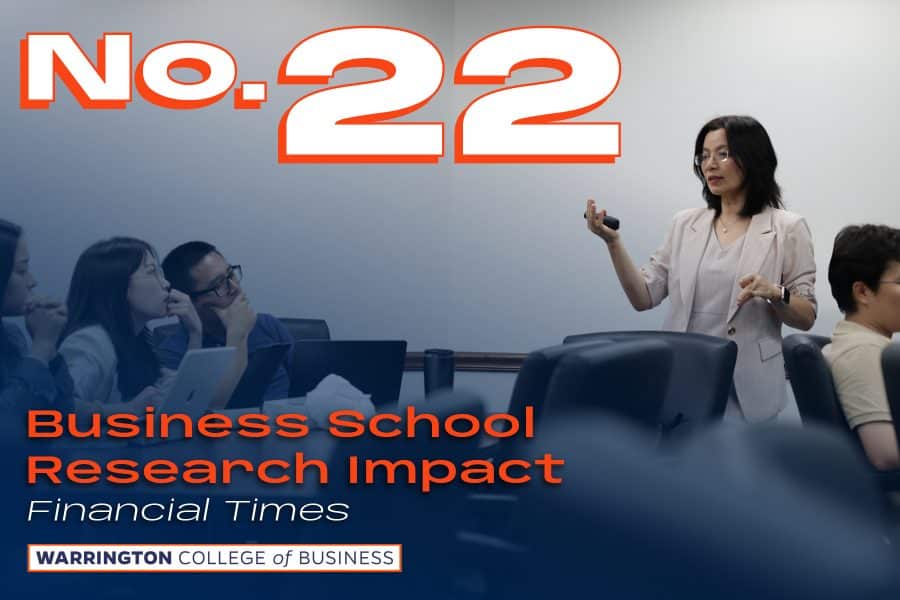
Recent publications
Breakthrough research with
real-world impact
The Warrington College of Business’s distinguished faculty members aren’t just conducting research — they’re pioneering the future of business knowledge.
Ranked among the top two percent of scientists globally, Warrington researchers deliver groundbreaking studies that bridge the critical gap between academic excellence and practical application.
Cutting-edge insights

The deadly cost of workplace rudeness
Rudeness in the workplace is far more than just unpleasant — it can be downright dangerous. Even mild instances of this behavior can significantly impair employees’ performance. This could have potentially life-threatening consequences in critical fields like health care.

Simple grocery store display changes could cut food waste & boost profits
Supermarkets could significantly reduce food waste while increasing their profits through smarter product display and pricing strategies. Retailers could cut food waste by more than 20% while increasing profits by 6% on average.

Is AI the new research scientist?
In a comprehensive study examining the capabilities of artificial intelligence in academic research, researchers have found that while AI can be a valuable assistant, it falls short of replacing human scientists in many critical areas.
Recent publications by all Warrington faculty

Why Warrington research matters
Every paper published by our faculty represents months of rigorous investigation into the challenges and opportunities shaping today’s business landscape. From emerging market dynamics to innovative leadership strategies, our research provides the evidence-based insights that drive real organizational transformation.
Stay ahead of the curve. For the academic community that demands excellence — because breakthrough research deserves breakthrough attention. Access the latest findings from internationally recognized experts who are defining tomorrow’s business practices today.
Our latest research stories
Faculty & Research
Why companies benefit from listing products on marketplaces like Amazon, even without making sales

Faculty & Research
Warrington professors win PRI’s Outstanding Paper Award

Faculty & Research
When advisors should take the lead in decision making


Partner with Warrington
Warrington researchers bring their expertise to the business world through a variety of impactful partnerships and applied research. Explore how we can help you.
